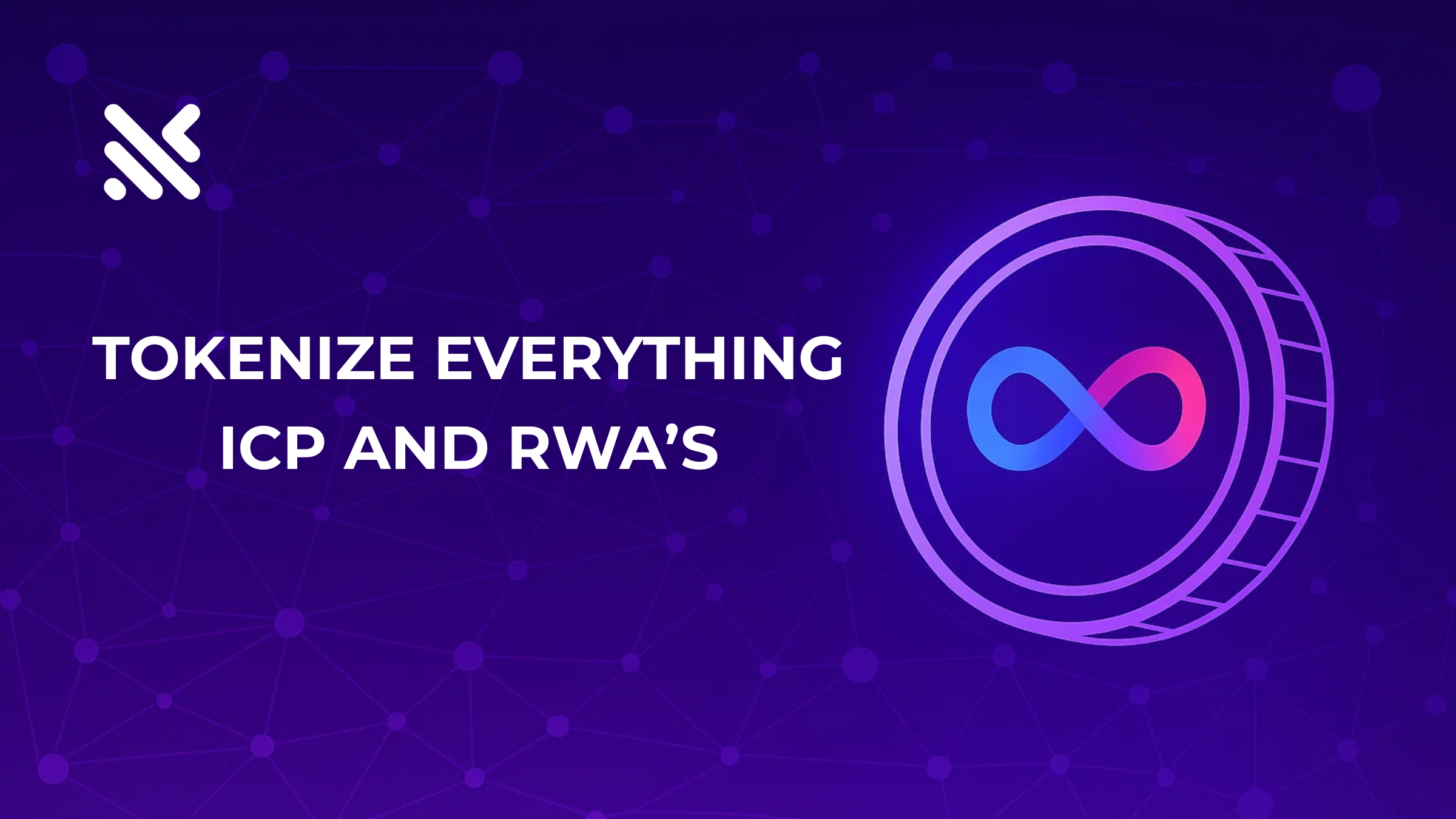
Tokenize Everything: How ICP is Bringing RWA's On-Chain
Tokenization is rapidly transforming how value, ownership, and participation are managed across the digital and physical worlds. On the Internet Computer (ICP), this process is not just a technical upgrade, it’s a foundational shift, enabling everything from decentralized governance to seamless trading of real-world assets (RWAs) and digital tokens. ICP’s architecture, with its speed, scalability, and unique governance model, positions it at the forefront of this revolution.
ICP Tokens: More Than Just a Cryptocurrency
ICP tokens serve as the lifeblood of the Internet Computer ecosystem. They power computation, storage, and bandwidth by being converted into “cycles,” which act as fuel for smart contracts and decentralized applications (dApps). Beyond this, ICP tokens are central to network governance: holders can stake their tokens, participate in voting, and shape the future direction of the protocol, earning rewards in the process. This multifaceted utility ensures that ICP is not merely a speculative asset but a core driver of a decentralized, user-owned internet.
Tokenizing Real-World Assets: Bridging Digital and Physical Value
One of the most compelling applications of tokenization on ICP is the creation of on-chain representations of real-world assets—ranging from company shares and real estate to art and intellectual property. By tokenizing RWAs, ICP allows for:
Fractional ownership, enabling broader access to investment opportunities.
Transparent, programmable assets with built-in rules for voting and dividends.
Instant, global settlement of trades without intermediaries.
This approach transforms traditional assets into verifiable, accessible, and liquid digital tokens, opening new markets and democratizing participation.
Seamless Interoperability: Wrapped Assets and Cross-Chain Integration
ICP’s ecosystem extends beyond its native token. Through innovative cryptographic bridges, ICP supports wrapped versions of major cryptocurrencies like Bitcoin (ckBTC) and Ethereum (ckETH), as well as stablecoins (ckUSDT, ckUSDC). These assets are fully native to ICP, enabling users to transact, trade, and interact with DeFi applications at high speed and low cost—all while retaining the real-world value of the original assets. This interoperability eliminates the need for risky third-party bridges and provides a unified environment for both crypto and tokenized RWAs.
The Decentralized Brokers Market: A New Era for Trading
Imagine a 24/7, decentralized brokers market on ICP, where users can instantly swap ICP tokens for tokenized shares or other RWAs—no banks, no clearinghouses, just peer-to-peer value exchange. This market structure:
Increases liquidity and accessibility for both crypto and traditional investors.
Incentivizes liquidity providers through staking rewards.
Offers potential tax efficiencies by keeping trades on-chain until fiat withdrawal.
ICP’s architecture, with its reverse gas model and high throughput, ensures that such a market can scale efficiently while maintaining security and decentralization.
Conclusion: ICP and the Future of Tokenized Finance
The Internet Computer is not just keeping pace with the evolution of blockchain technology—it’s redefining what’s possible. By enabling robust tokenization of both digital and real-world assets, fostering decentralized governance, and supporting seamless cross-chain transactions, ICP is laying the groundwork for a more inclusive, efficient, and transparent financial future. As tokenization continues to gain momentum, ICP’s innovative approach ensures it will remain at the heart of the next wave of digital transformation

